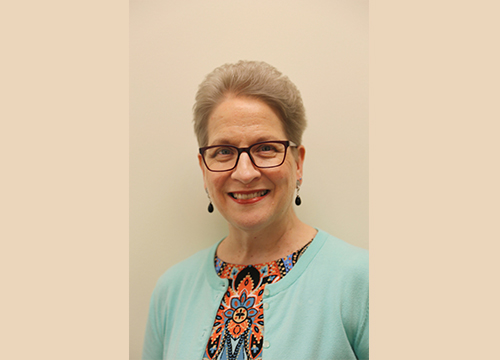Reflections on the Mass readings for Sunday, June 4: The Most Holy Trinity
This Sunday’s first reading permits us to eavesdrop on a conversation between Moses and the Lord God, as they meet inside a cloud hovering at the peak of Sinai-Horeb, the mountain of covenant.
God has called this meeting, and Moses arrives as instructed, carrying a second set of tablets for the inscription of the Ten Commandments. Recall that he smashed the first in a temper after finding the Israelites worshipping a golden calf at the foot of the same mountain.
In this brief episode, we hear the divine name (YHWH) proclaimed by the Lord God and followed by a self-description that echoes throughout the psalms: “…a merciful and gracious God, slow to anger and rich in kindness and fidelity.”
Moses himself sets the precedent for recalling this moment of God’s self-communication in subsequent covenant conversation, as he brings the Lord’s own words to bear on God’s frustration with his chosen people in Numbers 14:13-19.
The divine name forms a bridge between this reading and the responsorial psalm for the Solemnity of the Most Holy Trinity, which declares, “…blessed is your holy and glorious name.” The responsorial psalm selection comes from Daniel chapter three.
The term “canticle” signifies its origin outside the Book of Psalms. Its biblical setting takes me back to my Presbyterian roots, to Sunday school days in the church of my childhood.
As the story goes, three notorious Hebrew youths – Shadrach, Meshach and Abednego – have refused to comply with a direct order from their boss, Nebuchadnezzar, the king of Babylon, and have been cast into a white-hot furnace for their disobedience.
Instead of burning to a crisp like the servants who threw them in, they walk about in the flames, singing praises to God. Even when the king’s men stoke the fire with brimstone and pitch, it does no harm to the faithful Hebrews.
“The angel of the Lord went down into the furnace … drove the fiery flames out … and made the inside of the furnace as though a dew-laden breeze were blowing through it” (Dn 3:49- 50).
The four verses selected for the response come from the miraculously un-singed lips of our three heroes and form the introduction to a lengthy canticle, found in our Catholic Bible’s expanded version of the Book of Daniel. (The Catholic canon of Scripture, based on the Septuagint, an early Greek translation of the Old Testament, includes 100 verses of Daniel 3. The Hebrew text, on which the Protestant canon relies, frames the story of the three faithful Hebrews much more succinctly, excluding the long song.)
We hear variants of the refrain, “…praiseworthy and exalted above all forever,” in Sunday’s verses, which stack one upon the other in a mighty crescendo, framing images of God’s glory that soar upward on an ever-grander scale.
One can imagine the three singers walking in time through the fire, taking turns with the call line and responding together.
Our second reading from Second Corinthians, chosen, no doubt, for the Trinitarian blessing that concludes it, speaks firmly to our time, exhorting us to rejoice, mend our ways, encourage and agree with one another, and live in peace.
Sunday’s brief Gospel connects directly to the image of God presented in Exodus 34, as “merciful and gracious, slow to anger and rich in kindness and fidelity.” This one “so loved the world” that he brings about the salvation of that world through the life, death and resurrection of his Son, by the power of the Holy Spirit.
Reflection on this so-called economy of salvation, over time, brought to expression the doctrine of the Most Holy Trinity that we celebrate this Sunday.
In these days of persistent conflict and division, hatred, violence and cruelty, we do well to take these words to heart and put them into action toward all of God’s beloved. Thus, we may experience the presence of “the God of love and peace” in new and surprising ways.
Melanie holds a master’s in pastoral studies from Loyola University, New Orleans.

